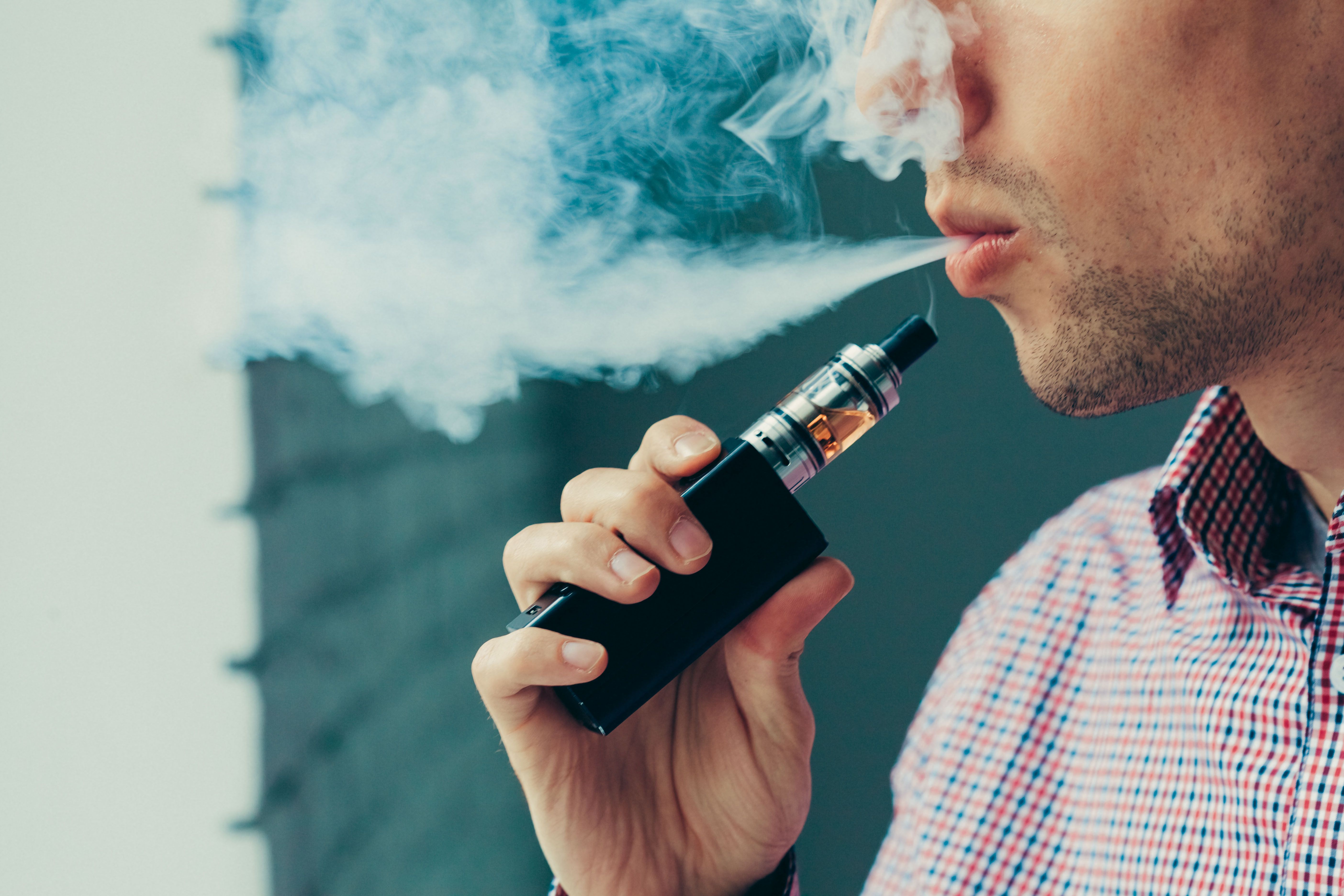- Acne
- Actinic Keratosis
- Aesthetics
- Alopecia
- Atopic Dermatitis
- Buy-and-Bill
- COVID-19
- Case-Based Roundtable
- Chronic Hand Eczema
- Drug Watch
- Eczema
- General Dermatology
- Hidradenitis Suppurativa
- Melasma
- NP and PA
- Pediatric Dermatology
- Pigmentary Disorders
- Practice Management
- Precision Medicine and Biologics
- Prurigo Nodularis
- Psoriasis
- Psoriatic Arthritis
- Rare Disease
- Rosacea
- Skin Cancer
- Vitiligo
- Wound Care
Article
Are e-cigarettes as detrimental as traditional cigarettes in wound healing?
Author(s):
The science looking at potential harmful effects of e-cigarettes is lagging, as e-cigarette popularity soars and consumer marketing takes hold convincing consumers that e-cigarettes are the safer of the two.
Early evidence suggests e-cigarettes may induce some of the same physiologic changes as traditional cigarettes. (fotofabrika - stock.adobe.com)

Dr. Desai

The science looking at potential harmful effects of e-cigarettes is lagging, as e-cigarette popularity soars and consumer marketing takes hold convincing consumers that e-cigarettes are the safer of the two.
The scenario presents surgeons with the clinical challenge of trying to determine how e-cigarette use compares to smoking regular cigarettes in terms of wound healing, according to a commentary published January/February in JAMA Facial Plastic Surgery.
Research on rats published in the same issue suggests smoking and vaping, or e-cigarette use, are equally detrimental to wound healing. Rats in both the smoking and vaping groups were significantly more likely to suffer flap necrosis than were rats in the unexposed group.
There are few human studies looking at the postoperative impact of vaping, according to the commentary’s author Shaun C. Desai, M.D., assistant professor of Facial Plastic and Reconstructive Surgery at Johns Hopkins University School of Medicine.
Dr. Desai cites a case report published November 2017 in the Archives of Plastic Surgery about a 51-year-old-female patient who had a bilateral mastectomy with immediate tissue expander reconstruction, which resulted in significant mastectomy skin flap necrosis and breast reconstruction failure. The patient told her surgeon she was a nonsmoker, despite her significant vaping.
“There is a public misconception that e-cigarettes are healthier than traditional cigarettes and as such their use may go unreported by patients. Early evidence suggests e-cigarettes may induce some of the same physiologic changes as traditional cigarettes, and may have a significant deleterious effect on wound healing,” the case study authors write.
Until more research is done, plastic surgeons and others should recommend that surgical patients stop e-cigarette use four weeks before their procedures, according to Dr. Desai.
“This recent study has certainly changed some of my clinical practice,” Dr. Desai says. “In addition to the standard history questions including smoking and drinking, I routinely ask all possible surgical patients about vaping separately, as many patients don't think this ‘counts’ as smoking. I think this recent study sheds light on the possibility that e-cigarettes may be just as detrimental to wound healing as traditional tobacco cigarettes, although further study is needed.”
Newsletter
Like what you’re reading? Subscribe to Dermatology Times for weekly updates on therapies, innovations, and real-world practice tips.








